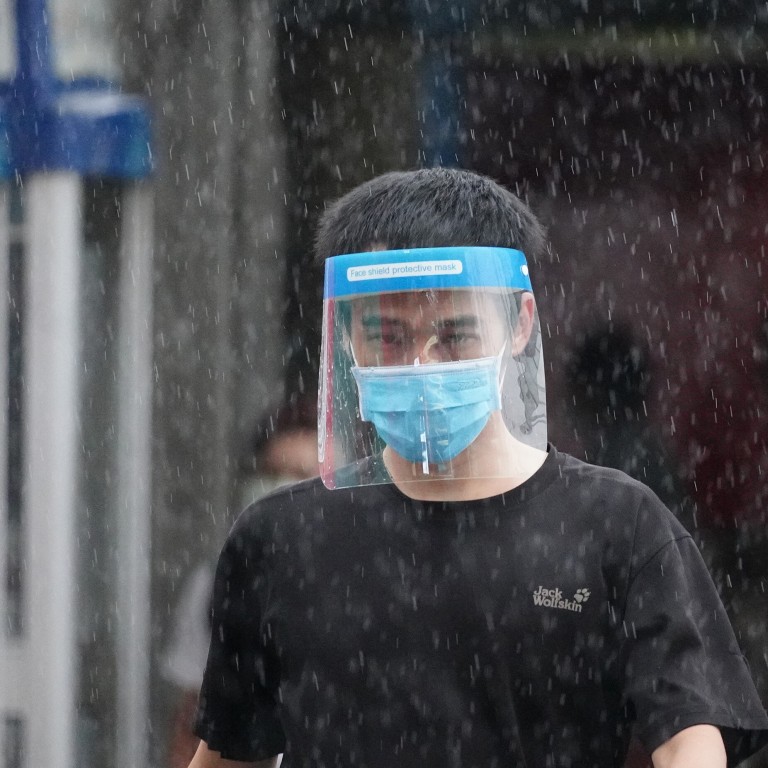
Hong Kong third wave: daily coronavirus tally drops to 18, lowest in six weeks
- Fall may have been related to Typhoon Higos, which made collecting test samples difficult, senior health official says
- Clusters at the main port and boarding houses for domestic helpers continued to grow
All but one of the latest cases were locally transmitted, with the sole imported one being a person arriving from India. The city’s tally stands at 4,604, while three more Covid-19 patients died, taking the number of related fatalities to 75.
“The figure was possibly related to the typhoon,” said Dr Chuang Shuk-kwan, head of the communicable disease branch at the Centre for Health Protection. “Some people might not have been able to return their samples [on Wednesday].”
The latest confirmed cases are the fewest since July 7 when 14 were recorded.
Among the newly infected were two Indonesian domestic helpers who stayed at boarding houses tied to existing clusters – Cheung Hing Mansion in Mong Kok and a dormitory in Tsuen Wan.
The helper who lived in Mong Kok also stayed for a few days in a flat on Fa Yuen Street before being quarantined in a government-run centre, but Chuang said the property agent had not allowed any other guests since learning the worker had spent time in a coronavirus-hit building.
The outbreak at Kwai Tsing Container Terminals, Hong Kong’s busiest port, also grew, with three more employees of Wang Kee Port Operation Services confirmed as having the virus. They were involved in checking and moving goods at the port and had used resting rooms at the terminal.
Authorities had tested 3,700 port workers after distributing about 8,000 specimen bottles and more than 1,000 samples were being processed by the Department of Health, Chuang said.
Some employees worked in “back-end roles” and might not come to the site very often, which could have contributed to the delay in returning samples, she added.
The sole imported case involved a 39-year-old woman arriving from India via flight 314 on Friday, becoming its 14th infected passenger.
Hong Kong reported its first infection at a detention facility on Wednesday, prompting health officials to test more than 500 staff and detainees at Castle Peak Bay Immigration Centre.
The 37-year-old Thai man, who came to Hong Kong last October, was found to have overstayed his visa during identity checks by police officers on Sunday and was later taken to the holding facility, where he shared a cell with three others. All detainees undergo coronavirus testing upon entry.
Chuang has expressed concern over a further spread in such an environment, citing outbreaks in prisons overseas.
Although Hong Kong was not testing correctional facility inmates, people held at the immigration detention centre were deemed high risk owning to their recent travel history.
The Food and Environmental Hygiene Department meanwhile, launched a testing scheme for staff of supermarkets and catering business staff of registered clubhouses that hold a Certificate of Compliance, as well as licensed hawkers, and started delivering bottles to the premises.
The Hospital Authority also announced that voluntary testing at its 22 general outpatient clinics that started last month for residents who had mild symptoms and thought they were high risk would be extended for three months.
A citywide voluntary Covid-19 screening programme is expected to begin on September 1. Doctors’ groups who attended a meeting with health officials said they were told that 2,000 people, including doctors, nurses and health care professionals, had been recruited to help roll out the plan, which will see specimens collected in venues such as community halls and schools.

